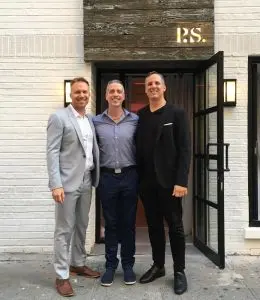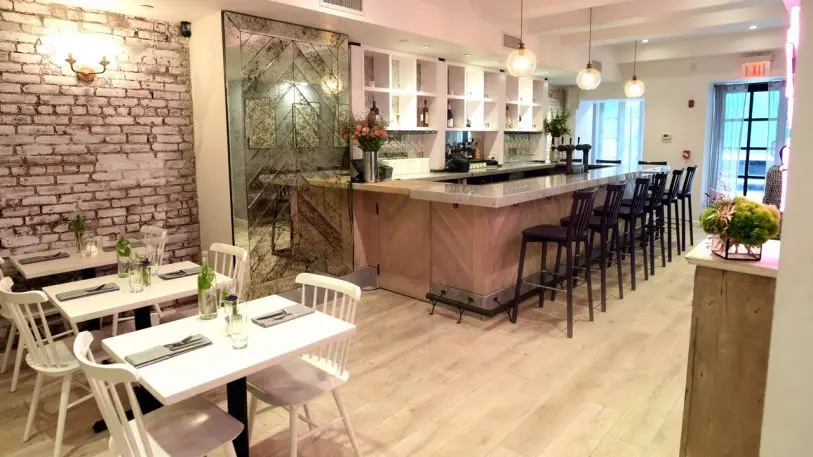When the upscale eatery P.S. Kitchen opened in New York’s theater district this August, its plant-based menu reflected one way to encourage social change. The plant-based menu, of course, advocates a more sustainable food system.

The company is structured as a charitable business, joining the growing ranks of companies giving 100% their profits to nonprofits. In this case, that includes giving to organizations that provide job training, transitional housing, and food and shelter to people who are homeless. Rather than stop there, P.S. Kitchen goes even further: It’s also a so-called social business, meaning that it has been also hiring those same aid recipients in-house, as a way to close the loop and provide steady work.
“We apply a business engine to a social problem,” Cochran says. “The idea is your money should have multiple lives.”

Cochran doesn’t like to share the names of people involved with the program. Most traditionally hired employees aren’t told that either. The idea is to create a safe space that’s free of stigma. “I think part of helping people move on is letting them leave their past behind them,” Cochran adds in an email to Fast Company.
While the restaurant isn’t yet profitable, the team behind it understands the need to seed that charitable work first. Without a pipeline for potential employees, they’d have no one to hire. To that end, they’ve have contributed a combined $1.2 million to various aid groups over the last 12 months, including those they’ve partnered with.

Eventually, Cochran hopes that P.S. Kitchen will be able to generate as much as a half-million annually toward these causes. So far, the restaurant isn’t profitable, but the owners say it is getting closer. The place does lunch and dinner service and holds about 85 people. (He’s also not sure how many in-need employees it could end up hiring, preferring to work with candidates on a case-by-case basis, rather than thinking about a quota.)
For now, the immediate need is putting out good food. Cochran describes the menu as “global cuisine unified by a classic French technique. One entree, the “Buffalo Hen of the Wood,” an elevated play on buffalo chicken that uses mushrooms instead of meat, features German purple sweet potato salad and house blue cheese. It goes for $17.
“At the end of the day, I would love to think that people really cared about the social business aspect, and maybe they do,” he says. “But we have to be a good restaurant and place where people want to come.”
Recognize your brand’s excellence by applying to this year’s Brands That Matter Awards before the early-rate deadline, May 3.
